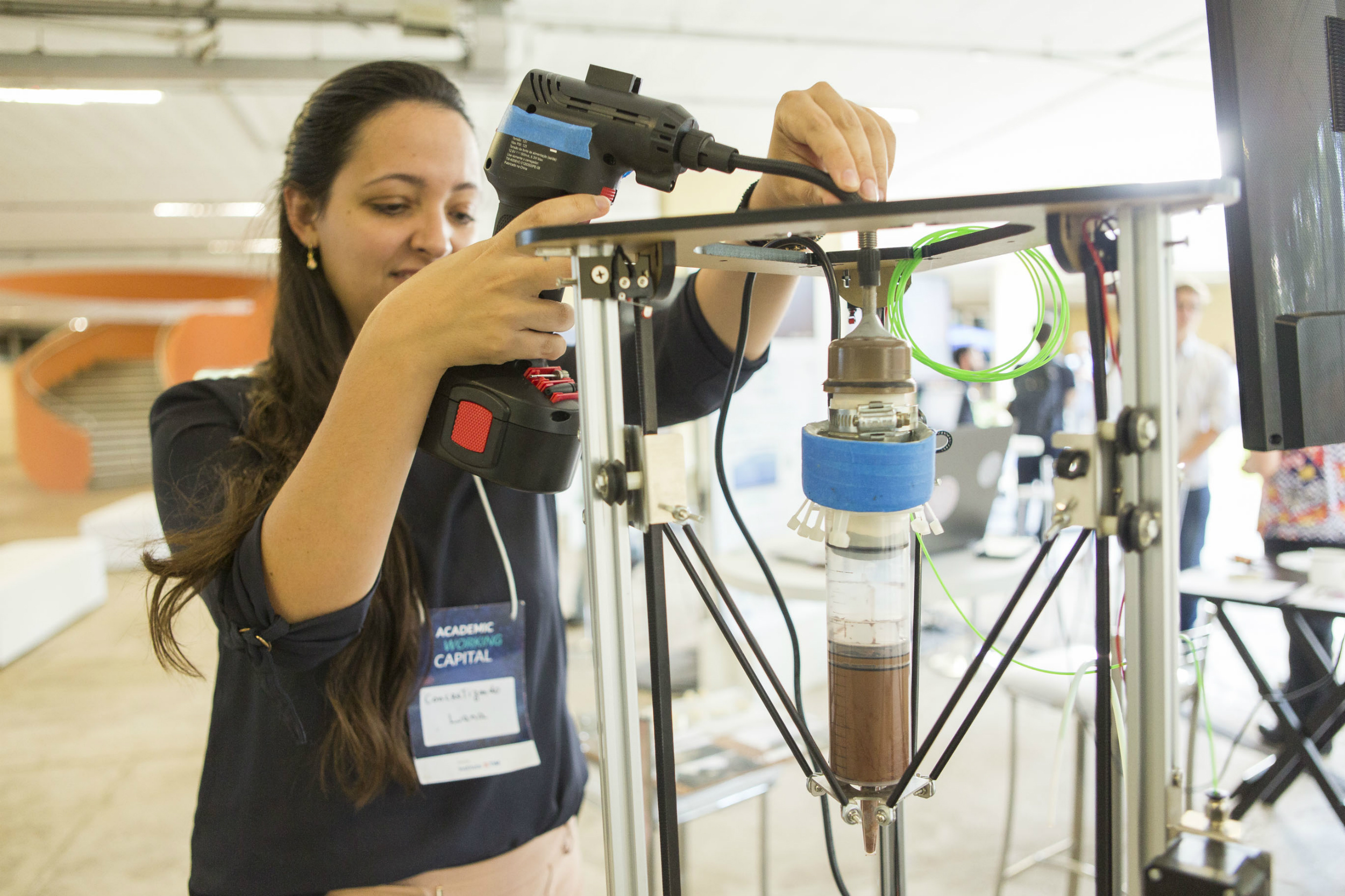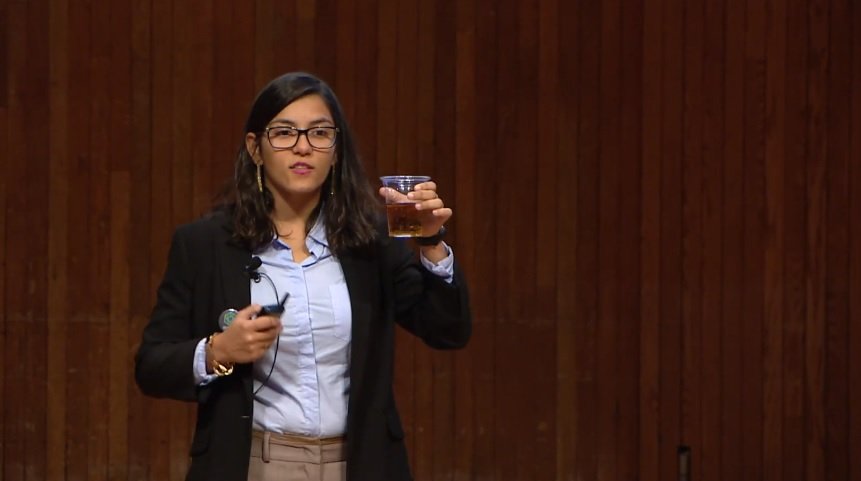University students begin the planning stage of building the prototypes

On August 6th and 7th, the students participating of Academic Working Capital 2022 met in São Paulo for Workshop II, in which they completed the problem validation cycle and began planning the solution validation experiment. Throughout the weekend, the groups watched inspiring lectures by renowned entrepreneurs in the market and presentations by the AWC team and got their hands dirty on their projects.
“With the interviews carried out in the first stage of the program, it was possible to identify consumer patterns and map problems and deficiencies. Based on this information, they are creating solutions that generate more benefits and more value for the customer”, explains Leandro Queiroz, AWC content coordinator.
On Saturday morning, right after the opening, the project team presented the students with two important business concepts: Value Proposition, that is, the benefits or values that are promised to offer to consumers to satisfy their needs, and Blue Ocean, that encourages the search for markets not yet explored. Next, Luciano Almeida, CEO and one of the founders of Restinga Brasil, a startup that connects the Food Industry with Food Service with the aim of fighting waste, told us about his journey of validating the solution. Right after lunch, another inspiring lecture: Felipe Ribeiro, creator of Barpass, an application that allows university students to access a network of advantages in establishments and differentiated prices for this audience, spoke about his business, about leadership and entrepreneurship.
Then the groups were invited to reflect on the solution they are proposing and define what resources are needed. They also talked about how these solutions that are being created are aligned with the concept of society 5.0, in which advanced technologies must be used in favor of well-being and solving human problems. Saturday ended with another guest: Pedro Salum, founder and CEO of LoopKey. The startup innovated by offering an access control service through an exclusive entry management system integrated with electronic locks. The business was so successful that, at the beginning of the year, it was acquired by Casai, a Latin American short-term rental startup.
“Getting to know the journey of all these successful entrepreneurs was very enriching. I felt a great identification with the history of Pedro Salum, which began in a very similar way to us”, says Clara Gadelha, a student of Water Resources and Environment Engineering at Universidade Federal Fluminense, from the Ambialert project, which is creating mass movement detection equipment for monitoring natural landslides.
Sunday began with the lecture “Don’t build your 1-client startup”, with Thiago Shimada, Communications and Marketing Strategist and CEO of Academia da Marca, an agency focused on designing strategies for those starting a business. And after so much inspiration, the groups got their hands dirty and started structuring their products, using the MVP technique, an acronym for Minimum Viable Product or minimum viable product, used by entrepreneurs around the world to help in the validation process of business ideas and products.
Laura Gurgel, community specialist, founder of Clube de Negócios (Business Club) and analyst at SharkTank Brasil since 2017 and one of the mentors of the AWC, gave a presentation to the university students and, afterwards, the groups met with their mentors to work on structuring the MVP of your projects.
“MVP is the application of the prototype in the business model. It is the best and fastest way to test market adherence and the delivery of value proposed by entrepreneurs. Therefore, we challenged them to create prototypes using one of the categorizations we presented so that they could carry out the tests”, explains Laura.
Another presentation on the validation experiment also moved the students’ Sunday, bringing inputs for the groups to work on structuring a tool to validate and test their product and hypotheses in the market, and find out if their proposal really makes sense for the customer. Enhancing the TCC proposal or even changing it so that it is a viable product is part of the journey proposed by the AWC.
“Our team arrived at Workshop II with three MVP sketches and throughout the proposed activities and with the interviews we carried out, we were able to define which among the three is the best solution to the problem we mapped”, says Herbert Oliveira, a Chemical Engineering student at University of São Paulo and AWC participant with the Inova Praia project, which is working on a solution that provides security for people who go to the beach alone and have no one to leave their personal belongings with. Finally, the students began to sketch the budgets of their designs, which will be refined in the coming months along with the construction of the prototypes.
“We managed to come back from this workshop more mature. We are developing our main MVP and will soon test it with potential customers”, says Jonas Cunha da Silva, from Revfood, a project aimed at food conservation for Bioprocess Engineering students at the Federal University of Pará. The proposal aims to create an ultra-thin edible film made from fruit peel to protect food, creating a barrier that increases shelf
life without high cost. After the stage of conducting interviews and the activities of Workshop II, the group decided to focus on only one food: papaya.
“With the interviews we were able to map which fruit the customer loses the most in economic terms. This new look that the AWC has been providing for us is fundamental for us to be able to design a product that speaks to reality”, explains Jonas.





































































































